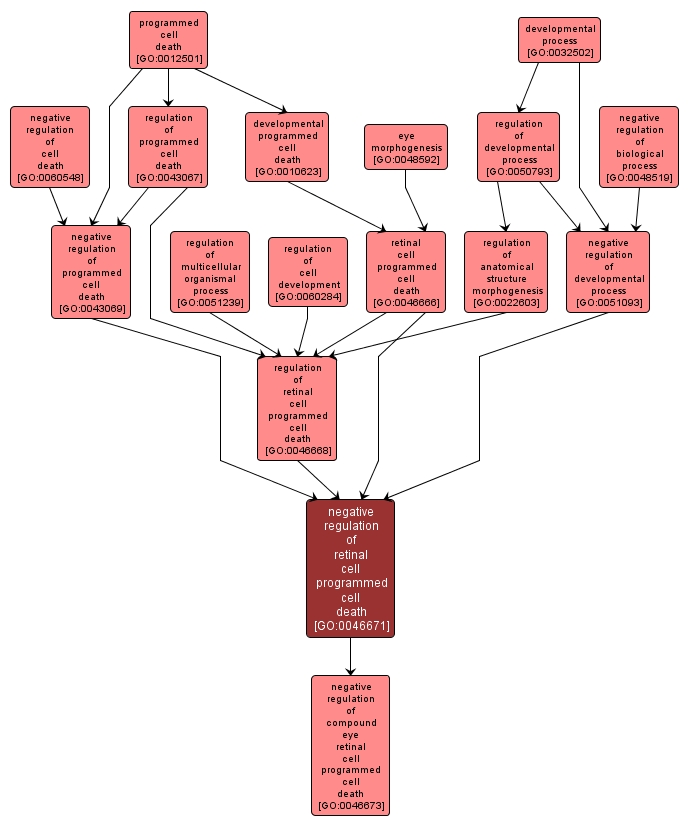GO TERM SUMMARY
|
| Name: |
negative regulation of retinal cell programmed cell death |
| Acc: |
GO:0046671 |
| Aspect: |
Biological Process |
| Desc: |
Any process that stops, prevents or reduces the frequency, rate or extent of programmed cell death that occurs in the retina. |
Synonyms:
- down-regulation of retinal programmed cell death
- down regulation of retinal programmed cell death
- downregulation of retinal programmed cell death
- negative regulation of retinal programmed cell death
- inhibition of retinal programmed cell death
|
|

|
INTERACTIVE GO GRAPH
|














